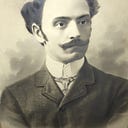From Fortnite to Metaverse, and back to physical worlds: digital futures for future events
As part of our “Design Thinkers” series on the future of events, Filiberto Amati of Amati and Associates, Warsaw, and I had the privilege to interview world-class talent, global citizen, and digital visionary Hugo Pilate, program manager at PLACE Network and co-conspirator at Banlieu du Turfu, formerly with Quicksand, India, currently independent Service Design consultant between smart cities and digital futures, between Eindhoven, The Netherlands, and Paris. This was an opportunity for Hugo to share his insights and ideas, and for us to learn about different roadmaps and landscapes of future events.
In spite of his youthful appearance, Hugo Pilate combines French heritage, American upbringing, and Indian professional experiences, in a highly reflexive practice extensively documented in publications and here on Medium, where smart cities, urban futures, and digital gaming are combined for innovation. His views on events are therefore rooted in a deep understanding of virtual environments. From his own portfolio, he identified Mozfest by Mozilla, where he created a virtual exhibit, as a valuable example of a future-proof, hybrid event, and the EyeMyth Festival in India, where he facilitated an AR workshop. In general, Hugo envisions future events where 3D spaces will be combined with online access, resulting in a uniquely “phygital” experience. Streaming will become the norm for events, however the events of the future will be very different from Zoom calls or Teams meetings as we perform them today. Serendipity will have to be enabled, even in non physical worlds. The context will be digital, while the interaction mechanisms will be based on the mimicry of real life.
A reference from the past, the “Minority Report” by Steven Spielberg, based on a short story by science fiction legend, Philip K. Dick, might be a reference but we will not get there soon. However, the transformational power of digital environments must be factored. In such contexts, one can literally “fly”, enabling a whole different experience. Minecraft or Fortnite start from the visual look and feel but end in a very immersive world, where speed, suspension of disbelief, and the general flexibility combined with fidelity provide unique opportunities for creation, co-creation, and collaboration. The IT requirements of Minecraft or Fortnite and alike virtual environment might be instead a limiting factor in the adoption and deployment of gamification opportunities. These games require long uploading timing and heavy investment in the necessary ability to perform them with the necessary comfort. Their software might require hours to be downloaded and for non gamers, the set up and preparations for a workshop or another collaborative activity might take its toll. However, the opportunity to exercise the power of imagination on virtual objects has a novelty effect and a liberating power, that results in unique engagement by those users who manage to absorb the first impact. After the first half hour of struggle, hours of joy follow.
How is the digital used for the purpose of events? Is the digital a (poor) substitute that should stand for in presence attendance? Or is the digital a novel experience, that was designed in first place as a hybrid transformation? The orchestration of multiple vectors and platforms will enable a new synthesis for brands or artworks, where innovative formats will emerge. Drivers might not change. The desire to congregate, meet, exchange will not change. The need for serendipity will not change. Digital opportunities will result in changes in the way people start their conversations, both with other people as with brands. Because of the limitations of the electronic screen, physical encounters, events, and meetings will continue to have a pivotal role in terms of business transactions, namely they will be necessary to establish the trust. Hugo himself enjoyed a “classic” product design education, where the digital factor triggered a shift towards co-creation, and the other way around.
Computer displays are indeed windows on our world, where everything can be recorded and therefore transferred to more audience and asynchronous experience, at a later time. This is very important as a differentiator in terms of rethinking our lives in our cities. Speculative Design is the word of the day these days, however more established roots, like the work of Jean-Francois Lucas, a great French social researcher who focused on Second Life, or Guy Debord’s psychogeographics, might be required to complete the transition from “classic” design to the generation of new value, thanks to new tools. Establishing a new footprint in this “brave new world”, where physical and digital blurs, is natural direction for the next step where Hugo’s journey into digital futures is taking him. It will be our privilege to follow him, and learn more from him, in the future.
